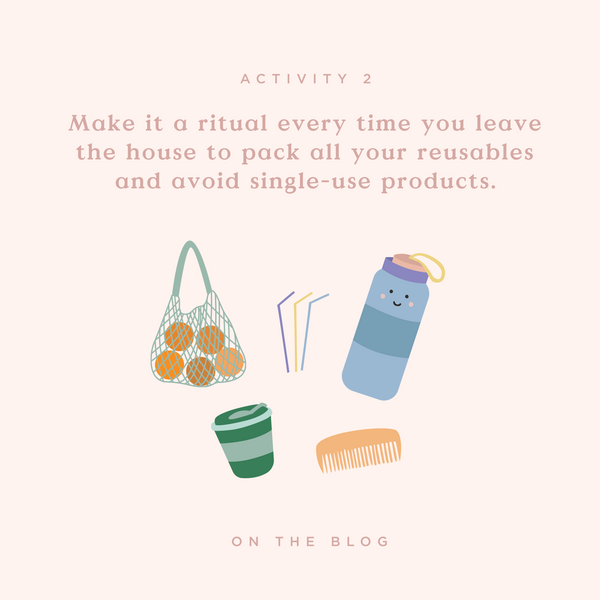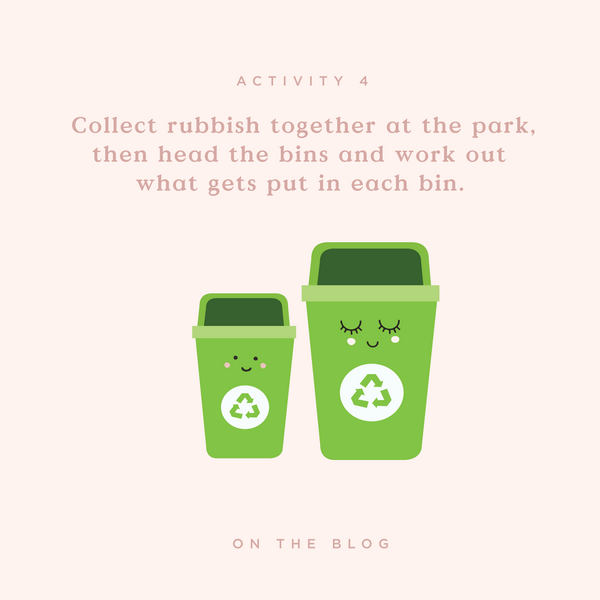
Educating kids on plastic
Educating kids on plastic
Plastic pollution and sustainability is a big and tricky topic - but through fun and interactive activities, we can teach our bubs about its impact on the environment and guide them away from plastic dependency. This World Environment Day, we’ve put together four activities that you can do with little ones to educate them on how to reduce, reuse and recycle. It's play-based learning, eco-style!
Make it fun!
Children love to discover, explore and get hands-on. If you’re anything like us, your kitchen cupboards are full of containers and utensils just waiting to be pulled out and investigated. Let kids lead their own learning by allowing them to sort through the contents of your cupboards. Turn it into a game by organising materials into different piles based on what they’re made of. You might like to start with sorting materials into two piles: plastic and other. It gets little ones thinking about the similarities and differences between these materials — the first step in raising plastic-conscious kiddies!
Give them time to explore the objects, and get them stacking, sorting and nesting empty containers. As they play, you can encourage them to think about the materials they’re playing with. Gently guide them by asking them what the objects are made from, what they could be used for and where they’ve seen similar material before. And, at the end of the day, it’s a great way to tidy up those cupboards.

Say no to single-use
Children are creatures of habit, and their habits often start with mimicking their parents. Remember, you are your little one's very first teacher! Some of us probably continue traditions that started with our own parents — Sunday dinners, using old craft paper as shopping lists, wrapping presents in newspapers… If we teach our own children traditions to reduce household plastic use, they’ll likely continue these as they grow. Every time you leave the house, make it a ritual to pack all your reusables and avoid single-use products. Get bubs involved in these eco-friendly swaps by allowing them to pick which reusable shopping bags, keep cups or water bottles to take.
If you’re going for a picnic, allow kids to have a play with your single-use plastic alternatives — whether it’s beeswax wraps or cloth bags — and then get them to assist in wrapping food. When it comes time to wipe faces or hands, use plastic-free products, like tooshies baby wipes, and get your little ones excited by allowing them to pack these into their very own reusable bag.

Tap into creativity
It might sound counter-intuitive, but an inventive way to get little ones learning about reusing plastic is to let them play with plastic rubbish! We don’t mean just throwing it around the playroom (although that can work too), but rather getting them involved by making useful and imaginative toys. Creating musical instruments is a great place to start. Turn old bath gel containers into maracas by filling them with rice, make bongo drums out of old soda bottles and use plastic lids as a pair of symbols.
Get creative! There are a lot of other ways you can get kids hands-on and reusing household plastic waste. Make herb gardens by using the bottom of plastic bottles, and create watering cans from old laundry detergent containers (punching some holes in the lid will be a job for mum and dad, of course).

Play the recycling game
This activity is perfect for those trips out and about. Take your little ones to the local park and hunt for any rubbish left behind on the ground. Go around and collect it together (you can always pop it into a reusable bag), then head to the park bins and work out what gets put in each coloured bin. You can do this at the beach, the river or even around your neighbourhood. At home, too, let them be in charge of sorting out your recyclables. They can have fun decorating or colour-coding bins and working out what material goes in which.

That’s a wrap
In today’s world, plastic waste is more than a little problem. But it’s a problem that can be mitigated through little changes. One of the most significant changes you can make is raising plastic-independent kids through fun, interactive play!
